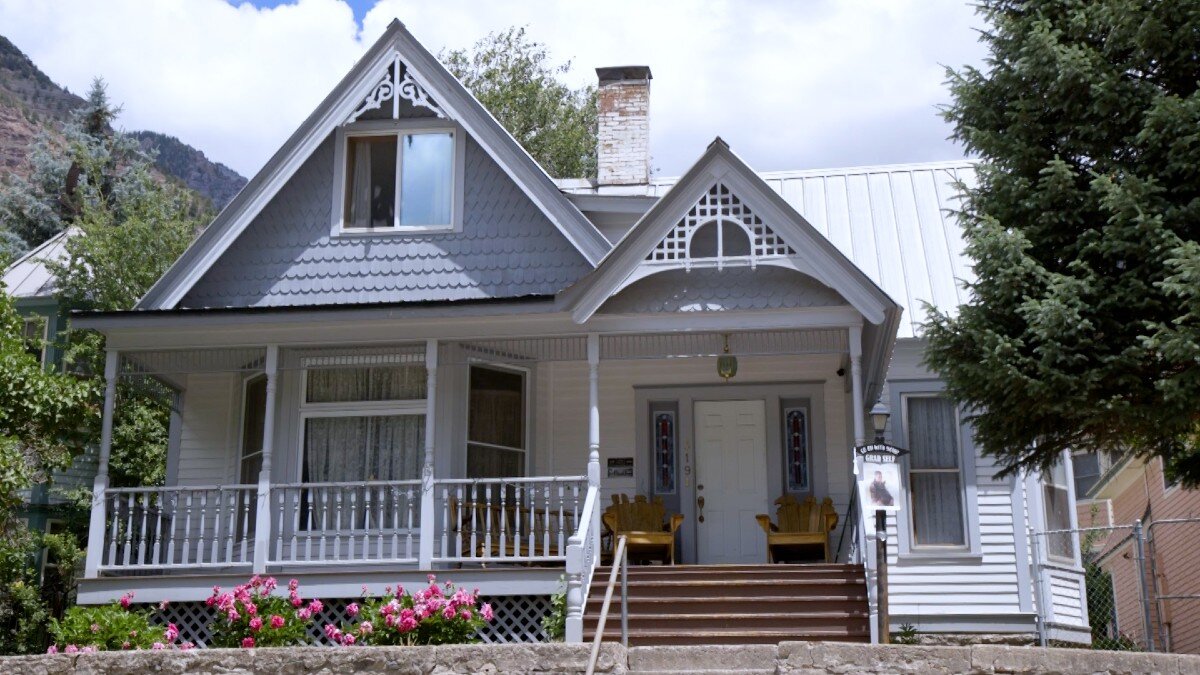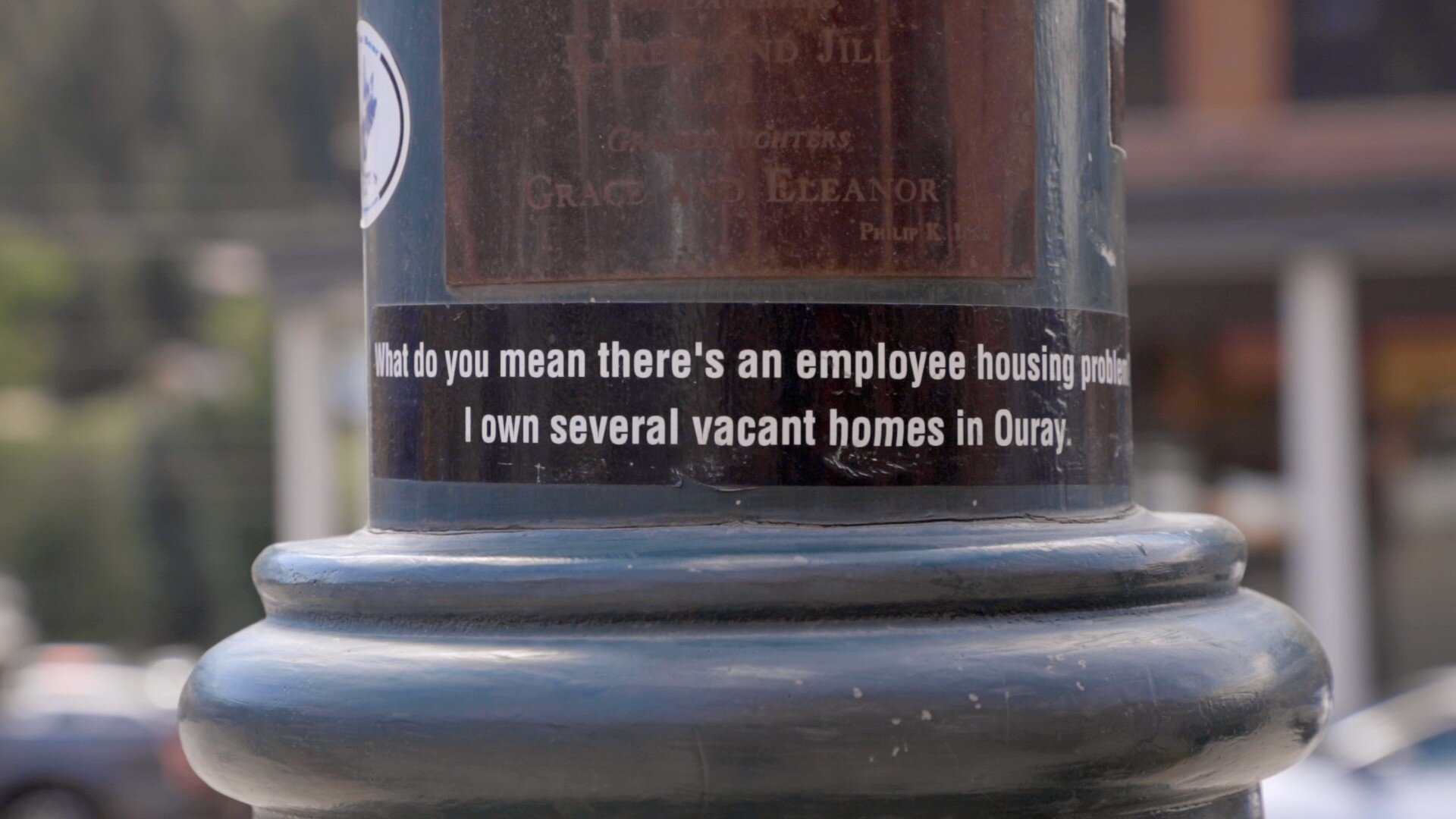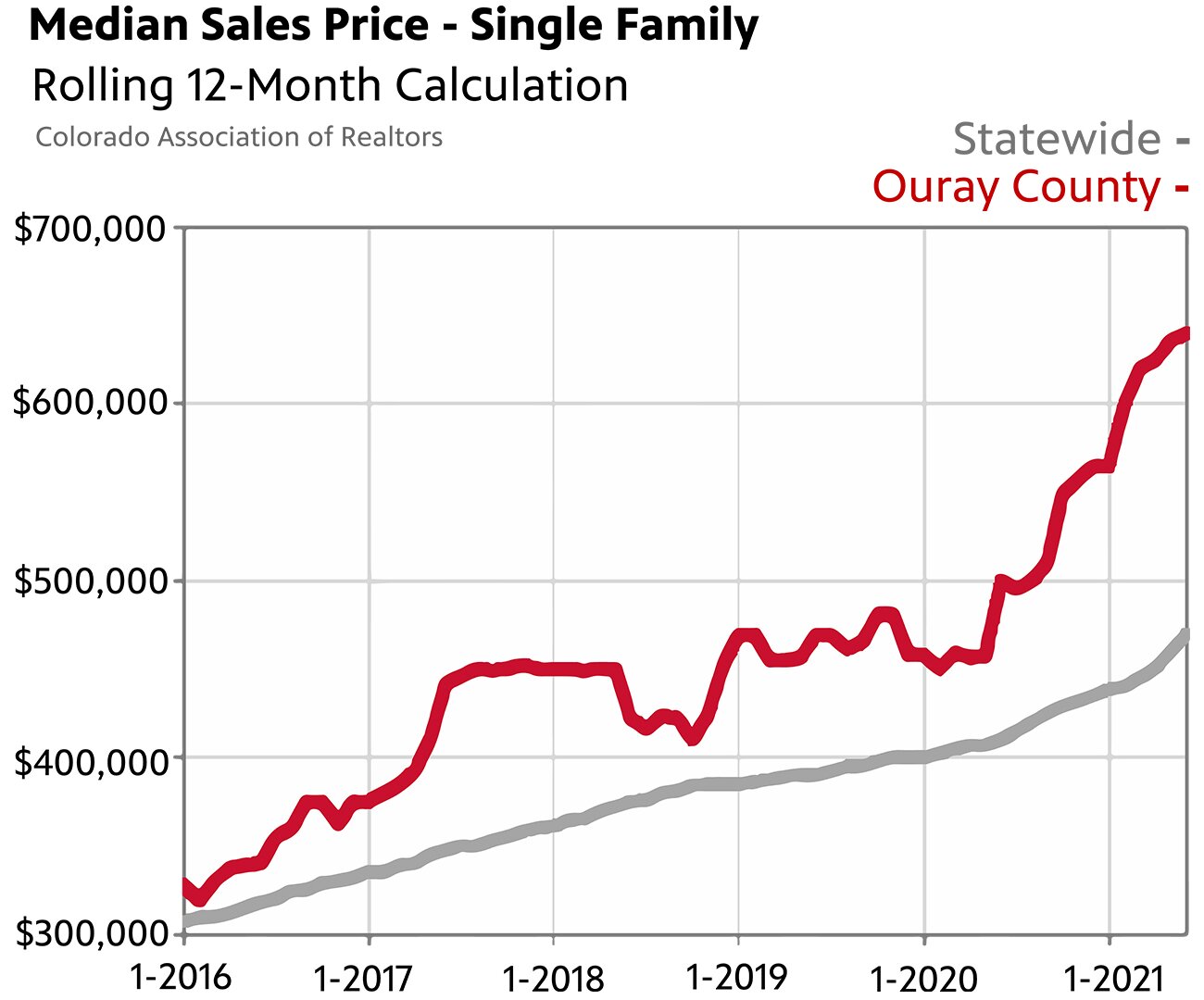While vacation homes sit empty, workers in Ouray struggle to find affordable housing

OURAY, Colo. — The employee housing crisis is like nothing the residents in Ouray have ever seen.
Increasing housing prices, rent, construction costs, and short-term rental (STR) properties have created an environment that fewer and fewer people are able to thrive in.
“Help Wanted” signs cover street-side windows in places like Ouray. With employers desperate to maintain a workforce, some business owners have begun to provide housing at whatever means they can afford.
Erin Eddy, owner of the Ouray Brewery, has done that for several people. By buying and renting out property he already owns, he can support his employees, along with J-1 student workers—a demographic he began reaching out to after positions went unfilled for months.
Eddy also covers security deposits and occasionally supplements rent when situations are especially dire.
“It bothers me because I want to have a community where my employees can live,” Eddy said. “With all the vacant homes and short-term rentals, a lot of these people have lost their housing.”
Eddy said he has recently switched his "help wanted" signs to "housing wanted."
Local home values have increased to more than three times the average purchasing power, according to the Telluride Foundation. Such towering prices have made it near-impossible for many residents to qualify. Meanwhile, the high selling prices have made homeowners eager to sell.
For some renters, the housing uncertainty grows along with the market price.

Diane Todd, one of Eddy’s renters and employees, reluctantly shares a house with multiple people and families, including her daughter. The constant flow of people moving in and out has left their property cluttered and Todd worried for her little girl.
“Who will I have to live with then?” Todd asked. “That concerns me being a single mom with a daughter.”
Todd, who has also worked as a part-time special needs teacher, has seen the community changing. 52 percent of residential properties are unoccupied in the city, and there are a total of 112 short-term rental licenses.
People leaving Ouray in search of affordable housing left the school shrinking. Todd is just one of many who claim to have lost close friends over the last year as mountain town living becomes harder to manage.
How are there housing problems with all these empty homes?
Short-term rental houses (think Airbnb) and vacation homes have been an increasing issue for housing availability across the state. With many of these houses going vacant for weeks or months at a time, and more buyers interested in renting out their scenic purchases, an increasing number of full-time residents are being displaced.
While vacation homes are not the only factor affecting the situation, locals are quick to point out the empty homes that have become a common site in the town.

Until recently, the city did not penalize homeowners in Ouray for renting their property without a license, which people can apply for on the city’s website. This casually enforced policy potentially aided a small network of illegally rented properties. During a report to city council, Community Development Coordinator Lily Oswald said to have found as many as 23 unpermitted short-term rentals, an estimated 20 percent of all short-term rentals in Ouray.
Pressure to respond urged the council to meet for a special meeting on Tuesday, June 29, in which a vote to allow local employees to temporarily live in RVs within city limits was passed. It was a short-term workforce housing solution that didn’t come without its share of scrutiny.
“The only way we’re going to get affordable housing is to build it,” said Todd.
However, construction in areas like Ouray isn’t easy with little-to-no room for development. The city is currently looking at land it already owns to use for residential developments, but it currently lacks the proper zoning and utilities needed to build housing.

In the meantime, the City of Ouray has threatened to start issuing fines to those operating any short-term rental units without a permit and it has suspended applications to those that do so. City officials have stated their respect for legal ownership of STR properties, noting that regulating them shouldn’t be their purpose as a municipality. Eddy believes otherwise.
“Small businesses will do their best to solve it, but sometimes there needs to be a bigger entity taking action,” Eddy said.
Pilot programs are in motion with organizations like the Telluride Foundation, which seeks to implement a model for cost-effective housing units, yet many months may pass until anything affordable will be built and sold to the working class residents who can afford them.
Matt Thornton is a multimedia journalist with Rocky Mountain PBS based out of Grand Junction. You can reach him at matthewthornton@rmpbs.org.
